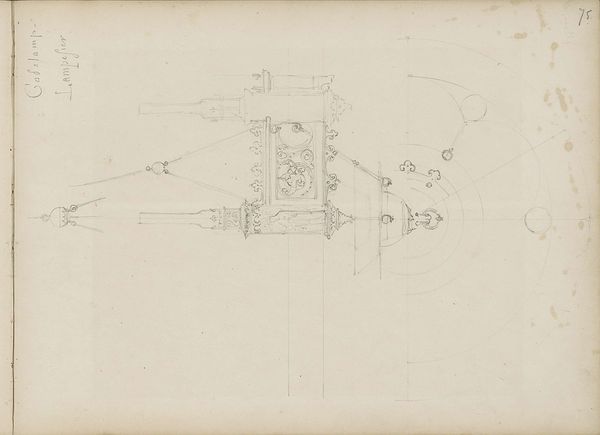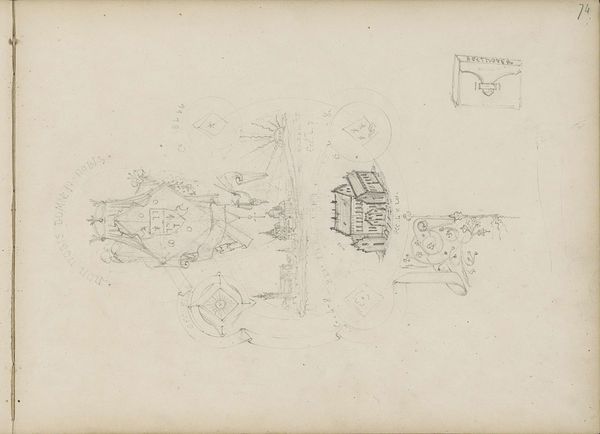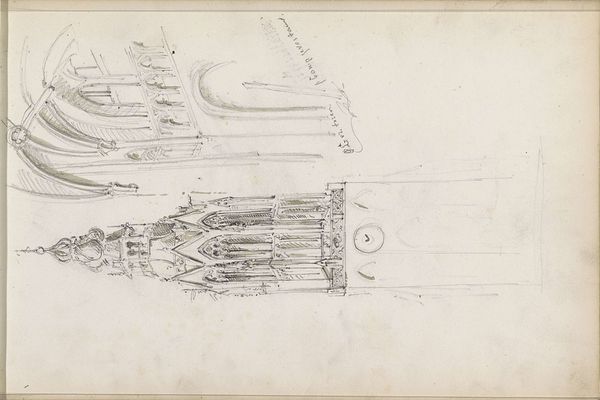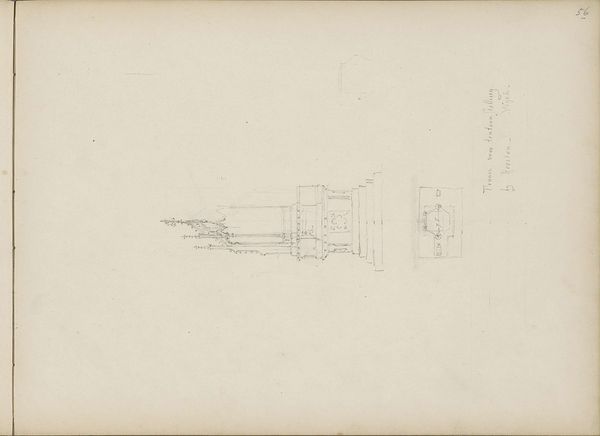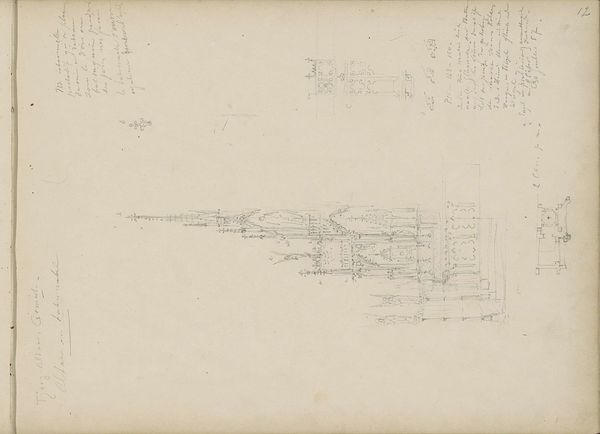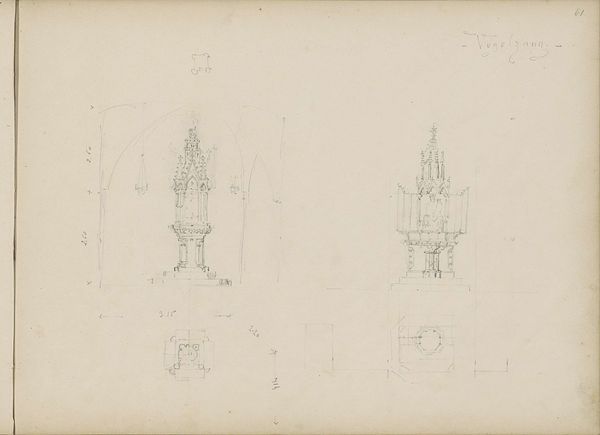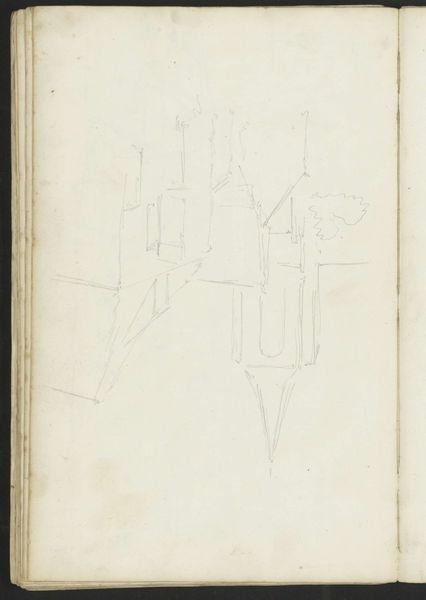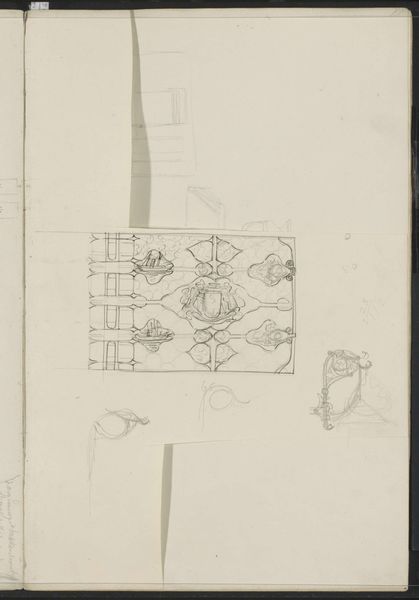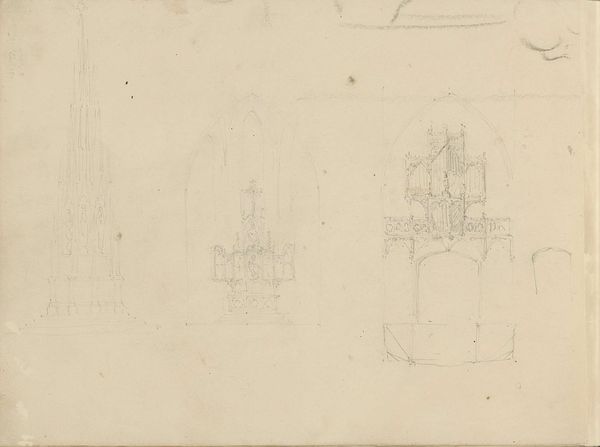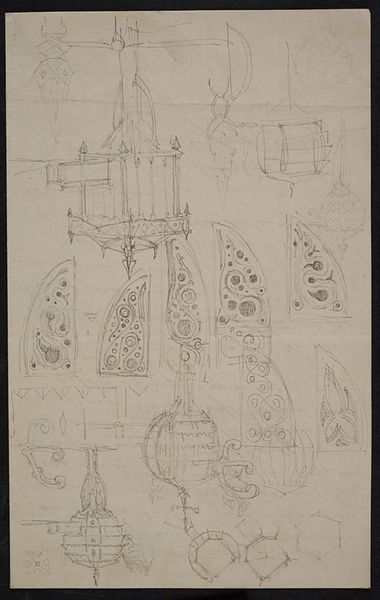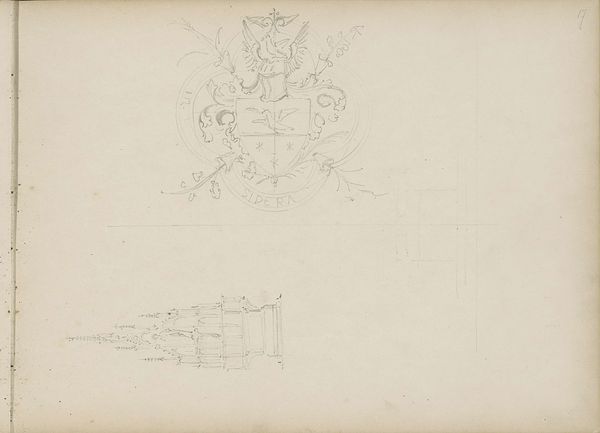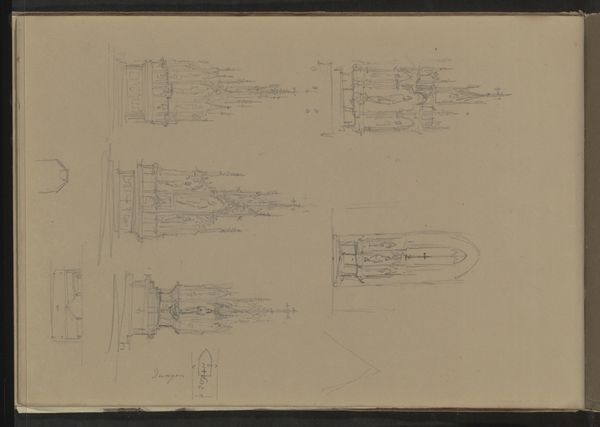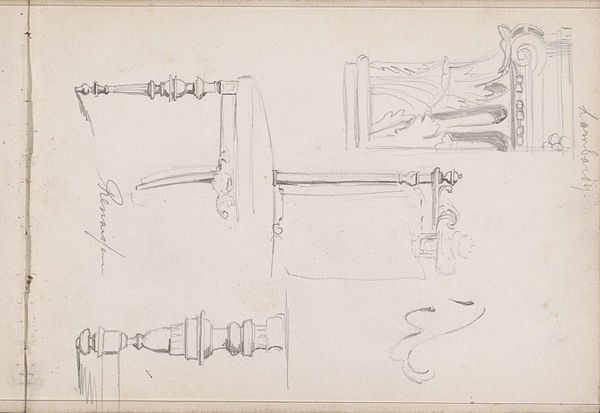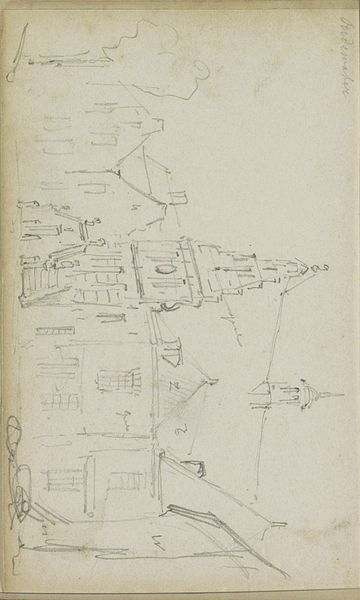
#
amateur sketch
#
table
#
statue
#
aged paper
#
sketch book
#
incomplete sketchy
#
hand drawn type
#
personal sketchbook
#
sketchwork
#
sketchbook drawing
#
sketchbook art
#
initial sketch
Copyright: Rijks Museum: Open Domain
Editor: So, here we have "Grave Monument, chairs, cupboards, a bed and sofa," a sketch by Pierre Joseph Hubert Cuypers from around 1850. It's on paper, part of a sketchbook, and the light touch makes it appear ephemeral. What do you see here beyond architectural drawings? Curator: Immediately, I'm struck by the depiction of the grave monument at the sketchbook's center – its intended symbolic resonance looms even in this initial draft. Look at the implied weight, the attempt to immortalize through structure. It sits amidst drawings of domestic furnishings. What emotional narrative is suggested when considering both life and death so directly? Editor: I hadn’t thought about the connection between them that way! The furniture now feels…almost like props in a play about mortality? Curator: Precisely! Cuypers is playing with familiar images here: chairs, beds. But they’re studies, detached, almost ghostly on the page, adjacent to what endures beyond daily use, and the implication ripples across time, invoking cultural anxieties around death, legacy, and memory. What do you make of its placement in the composition, across the two pages? Editor: It seems to almost divide the domestic, the familiar, and the memorial. One informs the other, maybe. Was Cuypers hinting at how we define ourselves through our belongings, even after death? Curator: That’s it! By placing the tomb within arm’s reach of mundane household objects, Cuypers challenges us to question their deeper significance. Are they simply comforts or building blocks of an enduring memory, defining who we were in life as part of what persists after? Editor: This sketch offers so much more than just an architect’s blueprint. Thanks! Curator: Indeed, it offers a peek into a 19th-century mind grappling with themes of domesticity and mortality that continue to resonate today. A wonderful object lesson in how symbols shift in meaning over time.
Comments
No comments
Be the first to comment and join the conversation on the ultimate creative platform.
